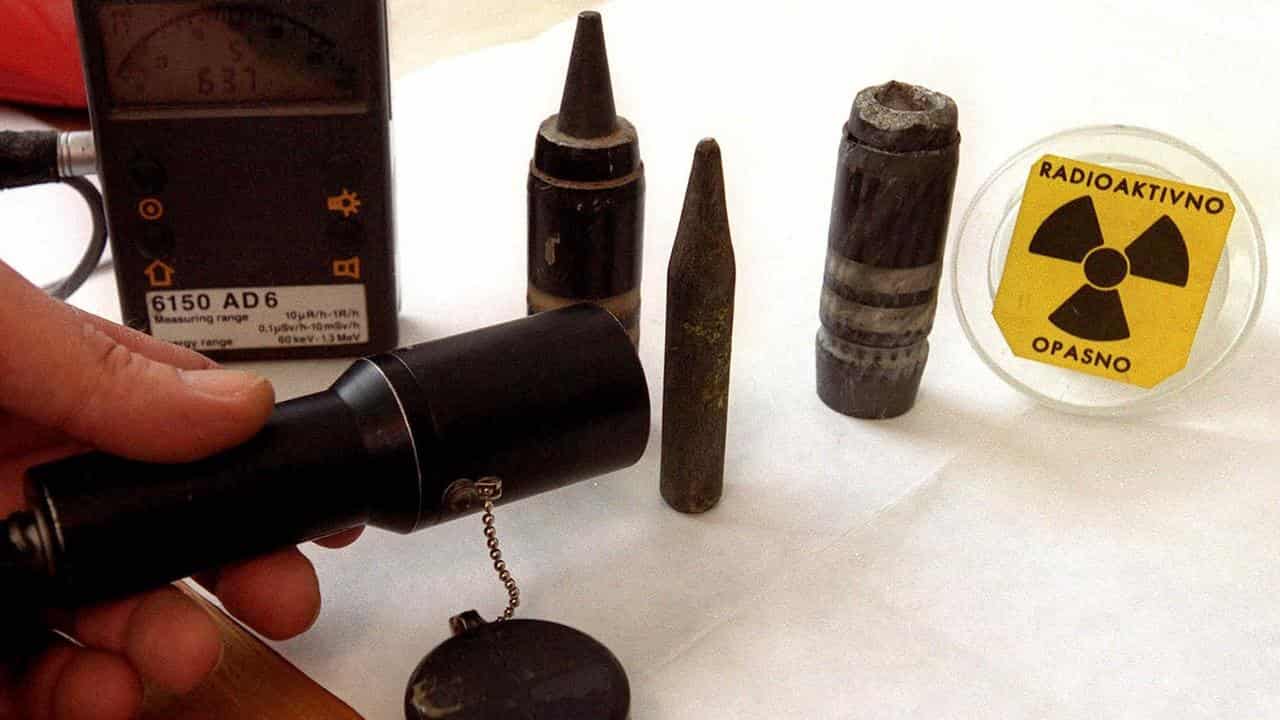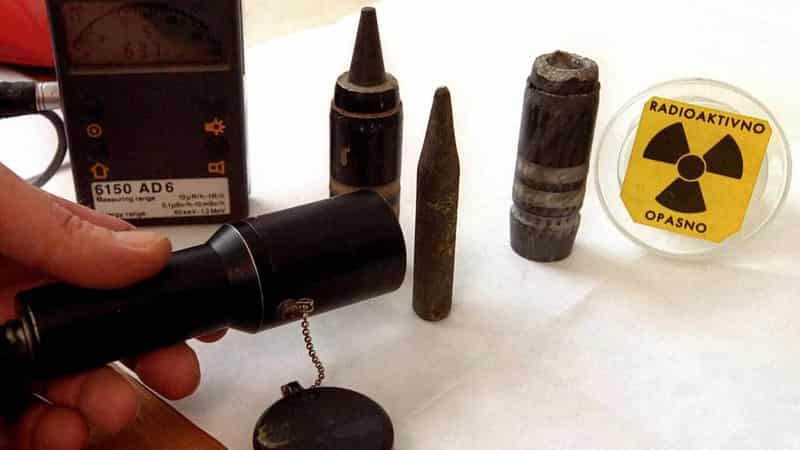
The Kremlin says the United States will have to answer for the "very sad consequences" of its decision to provide depleted uranium munitions to Ukraine.
The Pentagon on Wednesday announced an assistance package for Ukraine including armour-piercing depleted uranium ammunition for Abrams tanks. Britain has already sent similar shells.
Kremlin spokesman Dmitry Peskov said NATO's heavy use of such ammunition in bombing Yugoslavia in 1999 had caused a jump in cases of cancer and other diseases.
"These consequences are also felt by subsequent generations of those who somehow came into contact or were in areas where these weapons were used," he told reporters, saying the same would now happen in Ukraine.
Earlier Russian Deputy Foreign Minister Sergei Ryabkov called the supply of depleted uranium weapons "a criminal act".
"This is not just an escalatory step, but it is a reflection of Washington’s outrageous disregard for the environmental consequences of using this kind of ammunition in a combat zone. This is, in fact, a criminal act, I cannot give any other assessment," TASS quoted Ryabkov as saying.
The use of depleted uranium munitions is fiercely debated; the International Coalition to Ban Uranium Weapons says ingesting or inhaling even depleted uranium dust can cause cancers and birth defects.
But a United Nations Environment Programme report on the impact of depleted uranium on Serbia and Montenegro, in then-Yugoslavia, found "no significant, widespread contamination".
The UN nuclear watchdog, the International Atomic Energy Agency, says studies in former Yugoslavia, Kuwait, Iraq and Lebanon "indicated that the existence of depleted uranium residues dispersed in the environment does not pose a radiological hazard to the population of the affected regions".
Some Serbian politicians have disputed this and reported an increased incidence of malignancies, and deaths from them.
Britain's Royal Society said in a report in 2002 that the risks to the kidney and other organs from the use of depleted uranium munitions were very low, both for most soldiers in the field and for those living in the conflict area.
Countries such as the United States and Britain say depleted uranium is a good tool for destroying a modern tank because its high density allows it to penetrate armour. Britain says in its guidance that inhaling enough depleted uranium dust to cause injury would be difficult.









